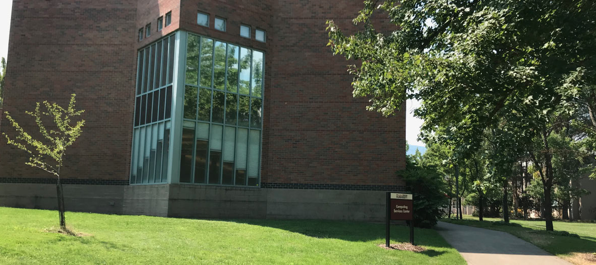New SOU Cybersecurity Certificate to benefit students, employers
By Joe Mosley, Director of Community and Media Relations
mosleyj@sou.edu

Southern Oregon University is addressing the pervasive issue of cyber criminals and a nationwide demand for workers trained to protect their organizations by offering a new certificate program in cybersecurity. The program allows both existing SOU students and mid-career adult learners to become certified with job-ready cybersecurity skills after completing 36 college credits – nine courses.
“This is a program designed with the needs of both regional employers and job-seeking students in mind,” said computer science instructor Priscilla Oppenheimer, whose industry experience was a key in the design of SOU’s cybersecurity curriculum.
Oppenheimer designed and manages the cybersecurity research lab for SOU’s Computer Science Department. She previously developed and taught classes on computer networking and security for Cisco Systems, and has instructed network engineers worldwide in the design, development, configuration and support of complex and secure computer networks.
“We hear about hacks and cyber attacks almost every day in the news, and it is an issue that won’t go away anytime soon,” she said. “We want to give our students the tools they need to prevent, detect and counteract any attempts to compromise the computer systems of their employers.”
The new Cybersecurity Certificate Program includes 20 credit hours of core, required courses on legal and ethical issues, computer organization, networks and security. Another 16 hours of elective coursework can include classes in computer forensics, programing, UNIX system administration, wireless networks and high-level studies in networks, security or computer science.

Students in the program should enter with precalculus and programming knowledge, similar to SOU’s two-course sequence in precalculus and the first two courses of the Computer Science Department’s programming sequence. Most students are expected to complete requirements for the certificate in about four terms, fitting courses in around other work or educational commitments.
The Cybersecurity Certificate can supplement a student’s bachelor’s or master’s degree program, or can be earned as a stand-alone credential. SOU’s 20 certificate programs differ from the university’s 17 new micro-credential offerings, in that they are more in-depth and require additional coursework. Both are aimed at preparing students for a changing job market by teaching specific skills.
“There is a huge nationwide demand for employees who are equipped to protect the computer systems of both large and small companies,” said Sherry Ettlich, chair of SOU’s Science, Technology, Engineering and Mathematics Division. “We chose to launch this certificate, rather than the major that many other universities offer, to provide greater flexibility and better serve those wanting to add this expertise while working in IT or related positions, or while working toward SOU degrees in computer science or other academic disciplines.
“SOU and the STEM Division are responding to the real-world needs of today’s employers, and preparing our students to succeed.”
The U.S. has an estimated 500,000 open jobs in cybersecurity as companies and organizations seek to protect themselves from the massive cost and disruption of security breaches.
Students in SOU’s new certificate program will learn about common threats and vulnerabilities, security principles, cryptography, risk management, access control, wireless networking and network device configuration. They will be taught to develop secure software and to design and manage secure networks.


Advertisement